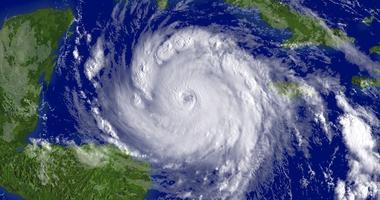
The Hottest Summer Ever
3 min read
Globally, this summer was the hottest on record. Let that sink in for a second.
Summer 2024 was 0.69 degrees Celsius (about 1.2 degrees Fahrenheit) warmer than the 1991 to 2020 average. That pushed it past the previous hottest summer, which was just last year, by about 0.03 degrees Celsius.
The northern hemisphere’s meteorological summer (June, July, and August) was 16.8 degrees Celsius or 62.24 degrees Fahrenheit, on average.
That might not sound particularly hot on its face, but remember, it’s an average that includes the temperatures in places like the Arctic and Greenland alongside the much higher summertime temperatures experienced in more temperate latitudes like North America and Europe, where numerous heat records were broken this summer.
For comparison’s sake, just look at Phoenix, Arizona, which has had more than 100 days at over 100 degrees Fahrenheit (37.8 degrees Celsius) this year.
Overall, June, July, and August were the hottest of each month on record, respectively.
“The period between June and August — summer in the Northern Hemisphere — was the world’s hottest such period since records began in 1940, according to data published Friday by Copernicus, Europe’s climate change service,” CNN reports.
Many climate scientists now believe that this summer’s high temperatures may push 2024 to become the warmest year ever.
And it’s not just the heat – it’s what the heat brings with it.
“With longer and more severe heat waves come more severe droughts in some places, and more intense rains and flooding in others. Climate change is becoming too obvious, and too costly, to ignore,” University of Michigan climate scientist Jonathan Overpeck told the Associated Press.
The reason why this is happening is no mystery.
What’s Going On
Burning fossil fuels releases greenhouse gases like carbon dioxide and methane. These gases act like a blanket around Earth; once released into the atmosphere, they trap heat from the sun, causing the planet to get warmer and warmer and warmer.
And we’re seeing the results of all this warming. As already mentioned, the impacts of excessive heat can have a domino effect, cascading across ecosystems and societies.
Droughts become more likely as heat increases evaporation. Wildfires become more frequent and intense due to these drier conditions. Heat stress harms crops and livestock, impacting food security. Public health suffers as heat exhaustion and heat stroke become more common.
Warming in the ocean can lead to more powerful and more destructive hurricanes.
The list goes on and on. It’s never just the heat, though for many, the heat itself is more than enough.
What Can We Do?
The good news is that we’re not powerless in our fight against all this warming.
If we transition away from the dirty fossil fuels driving higher temperatures to clean, renewable sources of energy like solar, wind, and geothermal we can turn things around.
Good thing doing so is popular with most Americans!
“Two-thirds of US adults say the country should prioritize developing renewable energy sources, such as wind and solar, over expanding the production of oil, coal and natural gas, according to a survey conducted in June 2023,” Pew Research Center reports.
About that same amount think the government should do more to encourage domestic production of wind and solar power and believe America should be carbon neutral by 2050.
Pew also found that a 54% majority of Americans view the climate crisis as “a major threat to the country’s well-being,” and 61% say that it is already affecting their communities.
Those who’ve dealt with record-setting temperatures this summer are likely inclined to agree.
Join Us to Learn More
Ready to learn more about the climate crisis impacting our communities and discover ways you can take action?
Sign up for our email list now.
We’ll send you the latest climate science, as well as ways you can fight back against the greatest challenge of our time.




